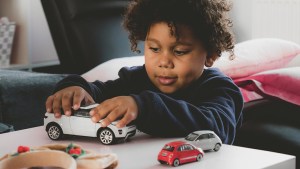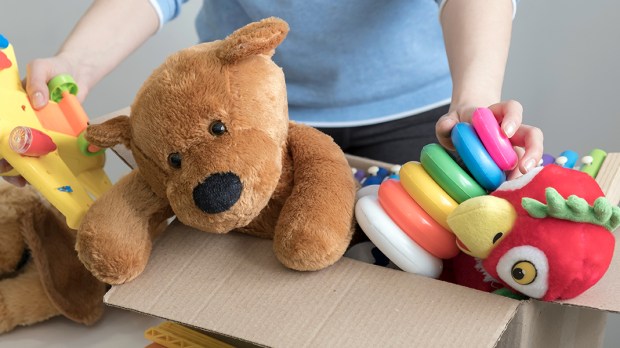My wife is the youngest of her siblings, and I have a lot of older cousins. As a result, we’ve actually purchased only a few of our children’s toys; we’ve been receiving them second-hand in almost wholesale quantities since our kids were born. Until recently we had toys filling four large trunks, the tops of the kids’ wardrobes, and several roomy drawers. It was a massive toy mishmash. Everything from Legos to bowling pins to action figures was scattered throughout the storage space.
At playtime, the children would go to their room and go through the ritual of making a mess by pulling out whatever they could onto the floor and picking a few favorites to take to the living room to play. After a short while, they would announce they were bored. It was an utterly ridiculous situation arising from an absurd number of different toys. We all know that quality is more important than quantity; our children, through the habits described above, basically showed that they know that principle too, at least in practice. Still, it took us a while to convert this knowledge into action.
Inventory
One day we finally said, “Enough!” This time, it was my wife who brought the toys to the living room — not just a few, the way the kids did, but all of them! Then, it was judgment day for the toy population. We threw out a lot of useless, broken toys; others, in better condition, were packed up to be given away eventually, or to be returned to use if they should come back into favor. At the same time, we sorted out the various types of blocks and figurines, checking which sets were incomplete and which were still genuinely useful.
Today, our children have just two containers with hard (plastic or wooden) toys and one with plush toys. It’s still a lot, but we certainly reduced the collection. These days, our children’s toys are coming to the living room in much smaller quantities. The kids tend to enter their own world and stay there, because it has become clearer and more focused.
In turn, we parents don’t have to despair at the sight of a seemingly infinite chaos of toys. Daily cleaning is simpler because everything is in just three containers. The kids are more inspired to play with complete sets of toys now that they don’t have to search all day for the parts, which previously were dispersed all over the place. They can just pull the toys out from one spot.
Environment for development
It can be difficult for parents to realize that children don’t really need all the latest and fanciest toys, just as they don’t need a calendar filled with activities. They just need the right environment for development.
It’s easy to fall into the habit of adding more and more toys that the kids will eventually abandon, protesting that they’re bored. What’s the solution parents often try? A video. Some of the titles on YouTube even say they offer “an hour of free time for parents.” One hour often becomes three, and soon we are in a vicious cycle.
Janusz Wardak, a family counselor, recently told me that simply playing with a stick and dirt in the garden is better for children’s development than watching even the most valuable content on the screen. Of course, it’s not like we have to stop our children completely from watching anything, but we have to help them keep a healthy balance. Reducing the number of toys helped us tremendously in finding that balance. Getting rid of so many things might seem like a bad idea at first, but in fact, it creates space for spending time together more fruitfully.

Read more:
5 Secrets to raising grateful kids

Read more:
Why you should take away most of your kids’ toys

